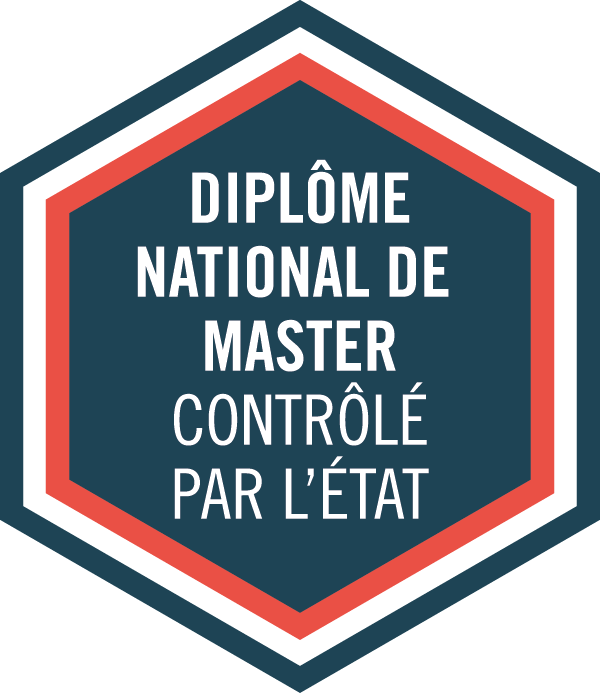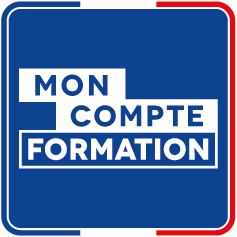Informations
Type of program
Initial education
Continuing education
Work-study
- Professionalization contract
- Apprenticeship contract
Employability rate
- 88,6%1 6 months after graduation
1Source: Observatory of Student Life – class of 2023
Go to content Navigation Direct access Intranet/ENT


Type of program
Initial education
Continuing education
Work-study

The track in economics and management of human resources (EMRH), offers a multi-disciplinary education in management, law and economics. It focuses on the functional and practical dimensions of HR (legal and financial aspects, payroll management, managerial issues, HR administrative management, etc.), on HR strategy and human resource economics relating to issues such as recruitment, personnel transfer or mobility, employability, training, skills acquisition, quality of working life, strategic management of jobs and skills (GEPP), TQM, management of redundancy plans, etc.) It prepares students for management jobs in Human Resources (HR director, recruitment, team management, business organization consulting, etc.). Students learn to master the basics of business management and economics as they apply to corporations, but also to SMEs, SMOs and public administrations, all of which play a vital role in the economic and social life of the region.
The EMRH track of the master's degree in human resources management has been designed for full-time or work-study students under an apprenticeship or professionalization contract, or who are returning to school after a professional experience. The program has been growing for over 15 years with support from a network of partner companies and administrations :
Unique features of the program :
Objectives of the program :
Analyze and understand the business and organizational strategies of companies and administrations
Understand the economics of organizational structures
Understand trends in the job market

Training accessible to disabled people.
Consult website

Training eligible for "MON COMPTE FORMATION"
moncompteformation.gouv.fr</
Dematerialized application files.
Applications are submitted on the Mon Master platform for M1 students, and on the ecandidat platform for M2 students.
Consult the procedure
You will need to bring the following documents with you: a recent photograph, a copy of your passport (or identity card), most recent diplomas and details of courses and grades, a covering letter and a CV.
International applicants not on exchange programmes must apply via the Études en France platform - French Agency for the Promotion of Higher Education, Hospitality and International Mobility. This portal enables people from certain countries to come to France to start or continue a university course.
Consult the procedure
The program is available in a work-study format with an apprenticeship or professionalization contract.
Unité 1 - Environnement économique et social de l'entreprise (6 ECTS)
Organisation économique et institutionnelle du marché du travail et politiques de l’emploi
Concurrence, stratégies d'entreprises et économie des plateformes
Unité 2 - Environnement juridique de l'entreprise 1 (6 ECTS)
Droit du travail et instruments juridiques
Droit des contrats d’affaires
Droit international du travail et gestion de la mobilité
Unité 3 - Management des Entreprises appliqué aux RH (6 ECTS)
Qualité de vie au travail
Digitalisation et nouvelles pratiques de travail 1
Management à distance et en mode hybride
Management stratégique des Organisations appliqué aux RH
Unité 4 - Gestion salariale et analyse financière appliquée aux RH (6 ECTS)
Gestion de la paie
Lecture des bilans et indicateurs financiers RH
Gestion de la masse et de l’épargne salariales
Unité 5 - Outils techniques et linguistiques du management des RH (6 ECTS)
Professional Skills and Corporate Culture 1
Informatique de gestion (Outils et techniques du Web, progiciel de gestion…
Méthodologie d’enquêtes appliquée aux RH
Unit 1 - Economic and social environment of the company
Unit 2 - Legal environment of the company - part 1
Unit 3 - Business management applied to HR
Unit 4 - Salary management and financial analysis applied to HR
Unit 5 - Technical and linguistic tools for HR management
Unit 6 - Contemporary HR issues
Unit 7 - HR strategy management and tools - part 1
Unit 8 - HR strategy and management tools - part 2
Unit 9 - PPR: Internship and work-study
Unit 1 - Business management applied to HR
Unit 2 - Strategic development of the company and of Human Resources
Unit 3 - Innovation and management in the company
Unit 4 - HR digital environment and organizational issues
Unit 5 - HR management and staff cohesion
Unit 6 - Steering HR indicators and company performance
Unit 7 - Legal environment of the company - part 2
Unit 8 - Professional skills gained through work-study and the internship
Students who plan to enroll full-time in a public institution of higher education must pay the Contribution to student and campus life (Contribution de Vie Etudiante et de Campus - CVEC).
Students must also pay tuition fees, which are set by ministerial decree for national degrees. They are indexed to the national consumer price index.
More information about tuition fees is available on this webpage.
If you are returning to school after a professional experience, you can find more information about tuition fees on the website of the Université Côte d'Azur Continuing Education Department.















